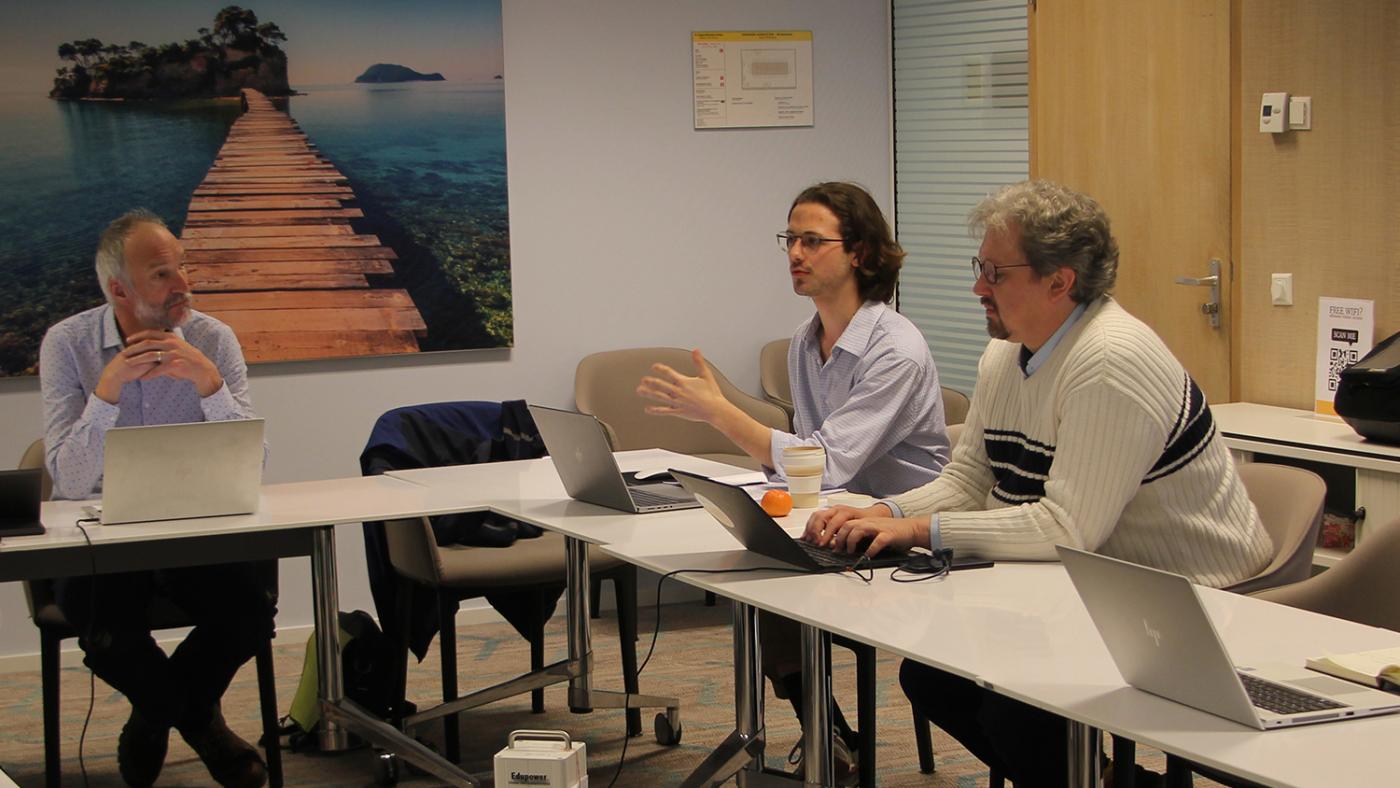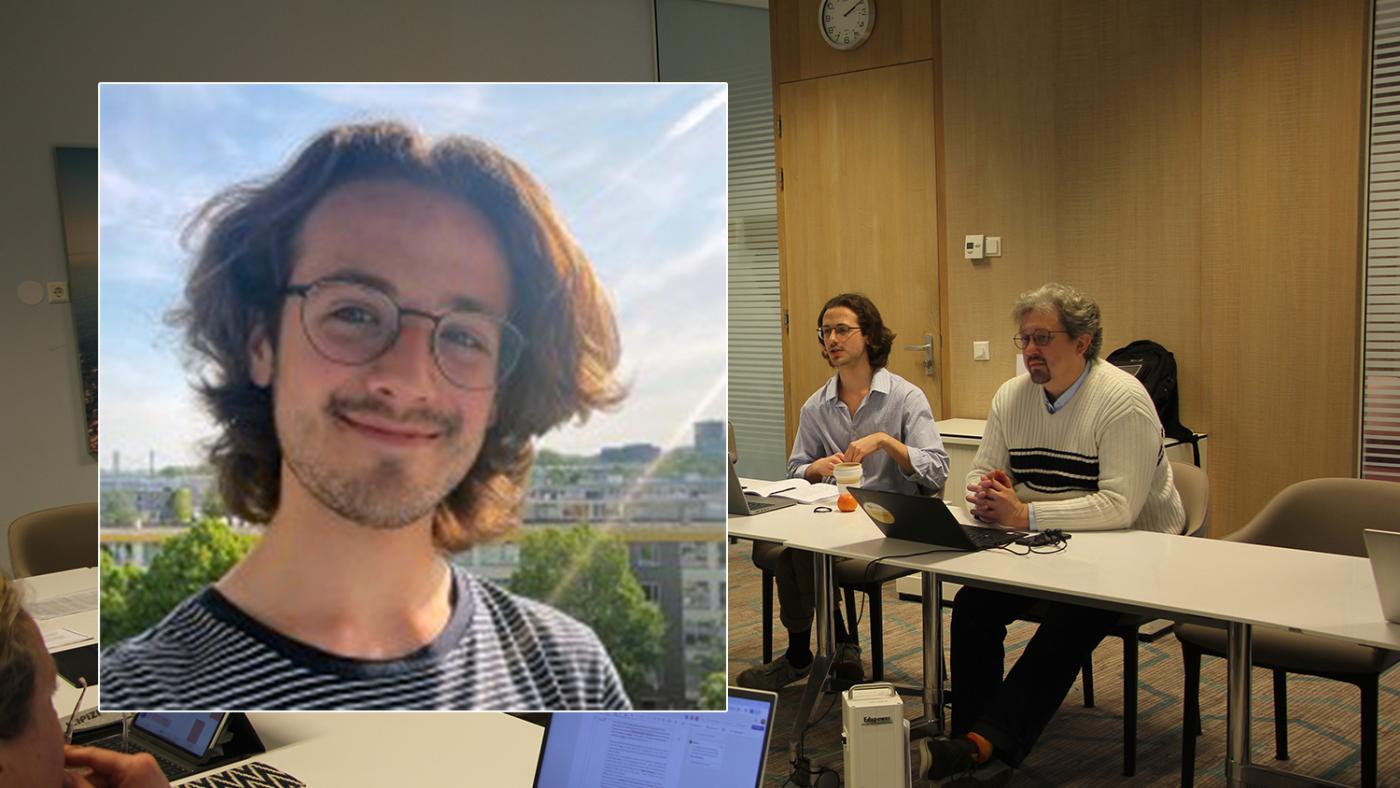Should council members be eligible for a basic grant from DUO?
‘European students are not being treated equally’

Matias is French-American and asked for a basic student grant based on his French citizenship. To be eligible for the basic grant, European students must work 32 hours a week. After working for six months, the number of working hours required drops to 24. European students must also earn at least 50 percent of the social security norm. In 2025, that’s 672.73 euros a month for people above 21 years old and 166 euros for those below 21. As a council member, Matias worked at least 28 hours a week and received 1,300 euros a month as compensation, which would therefore meet the income requirements for a basic grant.
DUO denied his request, saying that he was not eligible for the grant due to the type of income and nature of the work. “According to them, my situation lacks a relationship of authority because I didn’t have an employment contract with the university,” he explains.
DUO’s decision surprised Matias because other European students did get basic grants from DUO based on their council work, including the Italian Teresa Pappalardo, who was part of the UU Council in the same year as him.
Matias then decided to dispute DUO’s decision with a lawsuit. He is being represented by the lawyer Gor Gabrelian, from Avant Avocaten.

Teresa Pappalardo, Stan Janse, Matias Edelstein and Claire Bruls, student members of the University Council in 2023-2024. Photo: Luca Salman/DUB
EU law
Gabrelian explains that Matias is evoking EU law, whose definition of a worker is broader than the one used in Dutch law. For example, interns are not considered workers for Dutch law, but they can be under EU law. The EU legal order takes precedence over the domestic law of its member states. “Put simply, it ranks higher. This is necessary to maintain the unity and consistency of EU law across all member states and strengthen the internal market in the EU,” says the lawyer.
According to EU law, a worker is a person who provides services to a company or individual under their supervision or direction in exchange for remuneration. The question is whether serving on a university council fits this definition. "It is debatable whether the element of supervision exists within the council or in the relationship between the council and the Executive Board,” says Gabrelian. After all, an element of supervision could undermine the independent role of the council member as well as their ability to properly fulfil their duties.
“On the other hand, Matias was required to attend meetings at set times, draft memos, provide advice and so on. So, even if the element of supervision is lacking, Matias could still be considered a migrating self-employed person under EU law,” Gabrelian argues. Self-employed workers provide services to companies or individuals without necessarily being under someone’s supervision or direction.
Students must be students
UU Council chair Wim de Smidt supported Matias' application, especially because the student was so committed he devoted "considerably more time" to the council than the average 28 hours. He and the Executive Board provided Matias with letters confirming the activities performed for the council, how many hours those activities required, and how much he was compensated for them. However, De Smidt’s letter is clear: “He is not an employee of Utrecht University.”
De Smidt explains in an e-mail to DUB: "As soon as UU grants student council members a salary, those student members become UU employees and then have to give up their seats on the University Council. In other words, for the University Council to function properly, students must be students."
Disappointed
The district court ended up ruling in DUO’s favour. The judge concluded that Matias was not engaged in economic activities for the university, as the payment he received was based on the study delay he would incur due to his time spent in the council, rather than the time and effort spent performing his duties.
A flawed reasoning, in Gabrelian’s view. “The letters provided by the university indicate that the payment is directly linked to the time spent on the board. Additionally, student council members are expected to continue their studies alongside their council work, and many members do not experience study delays. Furthermore, the Court of Justice of the European Union has clarified that remuneration can take virtually any form, including government-issued student financial aid.”
The expectation to stay enrolled, to which Gabrelian refers, does not constitute an obligation. Student members have the option to serve on the council without being enrolled, which is convenient in exceptional cases. Those who choose that option do not pay tuition fees and therefore do not receive the basic student grant. Paying tuition fees is a prerequisite for receiving the basic grant.
The lawyer is also disappointed that the district court did not seek guidance from the Court of Justice. “This is particularly striking given the absence of clear case law from the Court of Justice on this matter and the significance of positions like the one Matias held.” According to him, the Court of Justice has consistently applied a broad interpretation of the concept of work, aiming to promote cross-border activities within the EU. “Migrating workers and students like Matias are the cornerstone of the EU,” Gabrelian emphasises.
Matias is equally frustrated about the ruling. “Dutch students receive a basic grant just for being students, no questions asked, while Europeans must work. According to the principle of equality, as a European citizen, I should have the same rights as a Dutch citizen,” he argues. He and Gabrelian plan to appeal the decision before the Central Appeals Court (Centrale Raad van Beroep), the highest court in social security matters in the Netherlands.

Matias Edelstein. Photo: DUB
A matter of principle
As for Teresa and the other European students who did get a basic grant, Matias explains that those don’t count as precedents. “DUO is not required to follow previous decisions if they believe it was a mistake. Legally, they are bound by previous decisions until they state that they made a mistake and are taking a different course.” Teresa and the other students do not have to return the money.
“I can’t say I’m surprised, but this is disheartening. A lot of my council career has been about ensuring international students are heard and have access to the same rights and benefits,” says Matias, underscoring that he didn’t expect to be in this situation. “I started my council year thinking: ‘I want to do something for my fellow international students’ and now I’m suing the Dutch government. Like, what? I never thought it would end up this way.”
He notes that he wasn’t counting on the money. Defending the equality principle was his main reason for embarking on a lawsuit. “A student asked me: ‘Don’t you think a government has a right to provide Dutch students with a particular benefit because they are Dutch citizens and you are not?’ I understand the reaction, especially because people have been thinking more and more in national terms. But if Dutch students go study in other European countries, they’re able to enjoy the benefits.”
In Matias’ view, the most upsetting part about the ruling is that it might discourage other European students from running for a council seat and thus making their voices heard. “This is an additional obstacle for seeking representation,” he argues. “Many Dutch council members can rely entirely on their compensation and basic grant. To international students, however, joining the council may be simply unaffordable.”
UU Council Chair De Smidt agrees: "I thought and still think it is unfair that international members of the University Council are not eligible for a grant, despite their dedication. This practice is undemocratic, as it creates a financial barrier for prospective student council members to participate in a representative body."
Not every student on the University Council earns 1,300 euros. The compensation value varies per student. "Student members get 74 percent of their applicable grant, statutory tuition fees, and any additional grant they may be entitled to," explains Wim De Smidt.